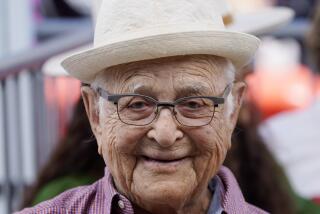Roy Fuller, 79; English Poet, Novelist Chronicled Daily Life
- Share via
LONDON — Roy Fuller, whose sharp, observant poetry chronicled the daily routines of home and office, making him what one critic called “a poet of public themes,” has died, his family said. He was 79.
Fuller, who was also a mystery writer and corporate lawyer, lived in southeast London and died Friday. No cause of death was announced.
Establishing his reputation as a poet during World War II, he produced verse and fiction over 50 years while pursuing a successful business career.
His reputation grew slowly but publication of his “Collected Poems” in 1962 saw critics hail him as one of the most serious poets of the generation after W. H. Auden and Stephen Spender.
In all, he published nearly 20 volumes of verse and 12 novels.
Fuller drew inspiration from the commonplace. Novelist Sir Kingsley Amis found in his work “the sharpest eye and the quietest voice of our poets.”
In a poem entitled “Obituary of R. Fuller” written some years before his death, Fuller noted skeptically of himself:
“Part managerial, part poetic--
“Hard to decide the more pathetic . . . .
“If any bit of him survives
“It will be that verse which contrives
“To speak in private symbols for
“The peaceful caught in public war.”
His business career began in 1938 when he joined the Woolwich Building Society as a lawyer. The company is one of Britain’s largest and richest savings and loans groups.
In 1941, he was called up for World War II service in the Royal Navy. He became a radio mechanic and later an officer but found enough time to write.
His verse in “The Middle of a War” in 1942 and “A Lost Season” in 1944 was praised for its clarity of observation and established Fuller as a highly individual war poet.
His novels included “Image of a Society” in 1956, which used business life as a metaphor for the world at large. In 1984, he was considered a leading candidate to succeed John Betjeman as Britain’s poet laureate but the post went to Ted Hughes.
More to Read
Sign up for our Book Club newsletter
Get the latest news, events and more from the Los Angeles Times Book Club, and help us get L.A. reading and talking.
You may occasionally receive promotional content from the Los Angeles Times.








